Feature Film Guests |
|
Roya
Sadat Q&A: Roya Sadat is an award-winning female Afghan director and producer who
successfully brought important, touching stories to international
festivals after the fall of the Taliban regime in Afghanistan.
She graduated from the University of Heart in law and politics.
In 2006, she was awarded a scholarship to study at the Asian
Film Academy in South Korea. Filmography: |
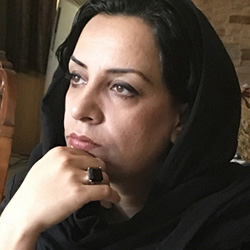 |
Aziz
Dildar Q&A: Aziz Dildar was born in 1984 in Kabul, Afghanistan. He studied
Black & White Photography at the School of Visual Arts, New
York University in Kabul as well as theater and cinema studies
at the Fine Arts faculty of Kabul University, where he graduated
in 2006. Filmography (selection): |
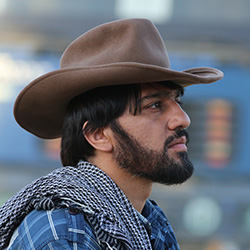 |
Claudia
Schaefer Q&A: Filmography: |
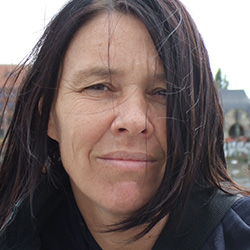 |
Documentary Film Guests |
|
Barbara
Miller Q&A: Filmography (selection): |
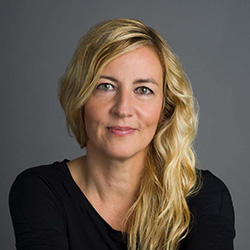 |
Dorothe
Dörholt Q&A: Dorothe Dörholt obtained a doctorate degree in psychology and media pedagogue. She grew up in Rappweiler, a small village in Saarland. Since 1996 she has been working as a television journalist. Her career began as a freelance editor at the German TV channel WDR. After a nine-year stay in the USA and having gained a great amount of experience as a freelance correspondent (amongst others for „Spiegel TV“) and as a documentary film maker for the and CNBC, Dorothe Dörholt returned to Europe in 2003. Since then she has been living in Switzerland where she works as a film maker. In her documentary films and reportages such as “Wir Kriegskinder: Wie die Angst in uns weiterlebt“ (ARD), „Vergewaltigt: Die Angst der Frauen in Indien“ (WDR), „Schlagstock unterm Sari: Indiens Frauen kämpfen für ihre Rechte“ (WDR) or „Von schüchternen Machos und heiratswilligen Señoras“ (ARTE) she covers a wide range of topics for public tv stations in Germany. Filmography (selection): |
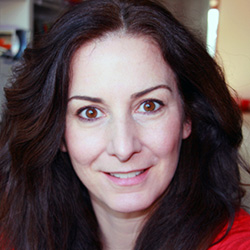 |
Fatou
Mandiang Diatta (Sister Fa) Panel discussion and exhibition opening: Q&A: The rapper Sister Fa was born in Dakar, Senegal in 1982. As a teenager she had already started recording her first demo-tapes, in 2005 she won the senegalese Hip Hop Award for Best Newcomer. In her music she confronts among others the issue of genital cutting of women (FGM) in Senegal, as well as forced marriage and HIV/Aids. After having moved to Berlin in 2006 she founded her own band, fusing Rap, Soul, Jazz and Reggae. In 2009 she performed at the concert of the United Nations in New York along with artists such as Harry Belafonte, John McLaughlin and Angélique Kidjo. For her commitment she received the South African award “Freedom to Create“in 2011. In the following years she worked with different partners, like the Goethe Institute, World Vision and the Orchid Project on her goal to raise awareness for FGM and forced marriage. Since 2016 Sister Fa is ambassador for the European Network to End FGM and works as CHANGE Agent for TERRE DES FEMMES to educate people about FGM. Discography (selection): Awards (selection): |
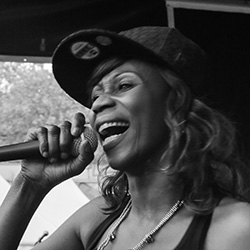 |
John
Chua Q&A: Dr. John Chua is a filmmaker, academic, journalist and explorer.
He spent 10 years as a professor and university lecturer in Britain. During
this time, John Chua became the first person to research and document
the existence of female genital mutilation as an indigenous practice
across all inhabitable continents, exposing an irrational and often
secret tradition. He has travelled globally for this project,
including the Russian Caucasus, Middle East conflict zones, Southeast
Asia, South America and the American Midwest, to gather interviews
with FGM survivors, cutters, doctors and experts. The resulting
documentary “Cut: Exposing FGM Worldwide” shows conclusively
that for many centuries FGM exists across religions and races. John
Chua has also produced documentaries for the BBC, PBS and Guardian
News Media. |
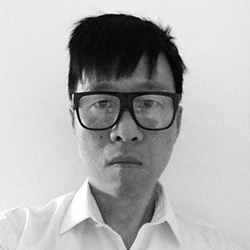 |
Veronika Raila Q&A: After successfully shortening her school career, Veronika Raila studies Modern German Literature and Catholic Theology at the University of Augsburg. She publishes poems and stories and does readings. She is awarded with the first price in the on3 reading series of the Bavarian Radio and with the Culture Award of the City of Königsbrunn for literature. She is currently writing an essay about Kafka. |
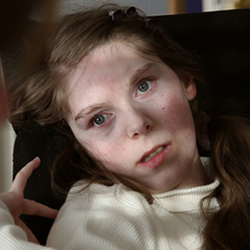 |
Mark
Michel Q&A: Mark Michel has worked for many years as a freelance filmmaker and writer for ARTE, MDR, 3sat, ZDF and WDR and contributes radio pieces for Deutschlandfunk, Deutschlandradio Kultur, Dradio Wissen and WDR. Before that, he studied Sociology and International Politics in Jena, Leipzig, Bath (UK) and Toronto (Canada), and Visual Communication at the Bauhaus-University in Weimar. Mark Michel is a member of Mediendienst Ost, a network of freelance journalists in Leipzig. As a writer and filmmaker, he has worked in Cambodia, Finland, Belarus, India, Hungary, Thailand, and Bosnia and Herzegovina, among others. One focus of his work is the integration and inclusion of people with disabilities. He took part in the Documentary Campus Masterschool in 2012. Mark Michel’s works include documentary films, short films, reportages, music videos and image films.
|
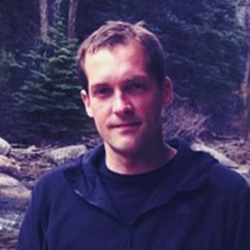 |
Shakila
Ebrahimkhil Q&A: Shakila Ebrahimkhil is one of the most famous Afghan journalists. She reports about human rights, corruption and violence against women. She was one of the first women to study journalism in Kabul after the end of the Taliban regime. After finishing her studies, Shakila Ebrahimkhil was part of establishing the biggest private channel in Afghanistan, TOLO News, for whom she then worked for the following years. Every day she faced danger to live due to her committed work as a journalist and her engagement for country and people. Because of the increasing threat level for journalists on-site, it was not possible for Shakhila to secure the safety of her three children and she decided to leave Afghanistan. Today she lives in Germany and works for the Deutsche Welle where she reports about her homeland. |
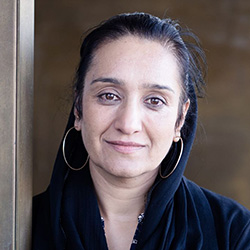 |
Experts |
|
Dr.
med. Gabriele Halder Q&A: Panel discussion: Dr. Gabriele
Halder is a registered Doctor of Gynecology and Obstetrics. The
focus of her activities is primarily on family planning and pregnancy. |
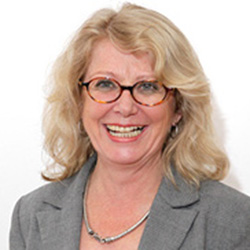 |
Micha
Schöller Q&A: |
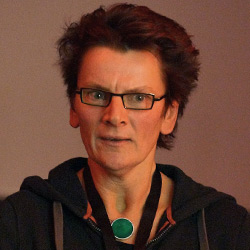 |
Monika
Michell Q&A: Since 2010 Monika
Michell is spokesperson on “Violence in
the Name of Honor” at TERRE DES FEMMES. Between 2010 and
2011 Monika Michell conceptualised a series of workshops for administrative
employees in Baden-Württemberg on the topic of “Violence
in the Name of Honor and Forced Marriage”. In 2012 she conducted
a nation-wide creative competition for young adults regarding the
issue of forced marriages. |
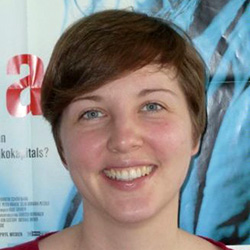 |
Stephanie Schlitt Round table: Stephanie Schlitt supports the World Health Organisation since 2016 in its work to build and analyse the Global Abortion Policies Database, a publicly accessible data base containing laws and regulations on abortion of all countries. Between 2004 and 2014 she was a consultant on gender and women’s right for the Amnesty International secretariat in London. There, she developed positions, methodologies as well as legal and political strategies and research projects regarding the topics abortion, maternal mortality, violence against women and women’s rights defenders. In addition to that, Stephanie worked with the German Institute for Human Rights, the Sigrid Rausing Trust as well as NGO’s in New Dehli and studied philosophy, international relations and international law in St. Andrews and London. Since moving to Berlin in 2017 it is Stephanie’s goal to bring the human rights angle into the discussion surrounding the reform of the criminal law provisions regarding abortion. |
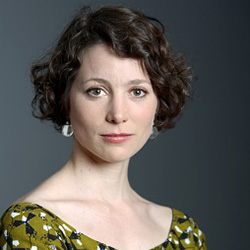 |
Gisela
Schneider Q&A: Dr. med Gisela Schneider is working as a doctor specialized in tropical medicine and public health and is leading the German Institute for Medical Mission in Tübingen (Difäm e.V.). As director of Difäm in Tübingen she is working especially with local partners in Africa and Asia to improve the healthcare system there. That includes establishing healthcare centres, improving the medical supply and the education of qualified professionals. The focus lies on prevention and treatment of HIV and AIDS, malaria, tuberculosis and other infectious diseases as well as non-viral and chronic diseases like cancer and diabetes or psychological diseases. The objective is to provide access to health for every human, and especially for disadvantaged people in neglected regions and countries like the Congo, Kenya, Malawi, or the Chad. |
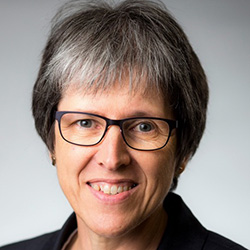 |
 |
 |
|
|
|
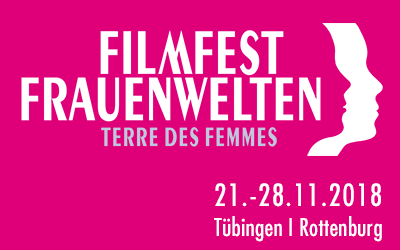 |
||||